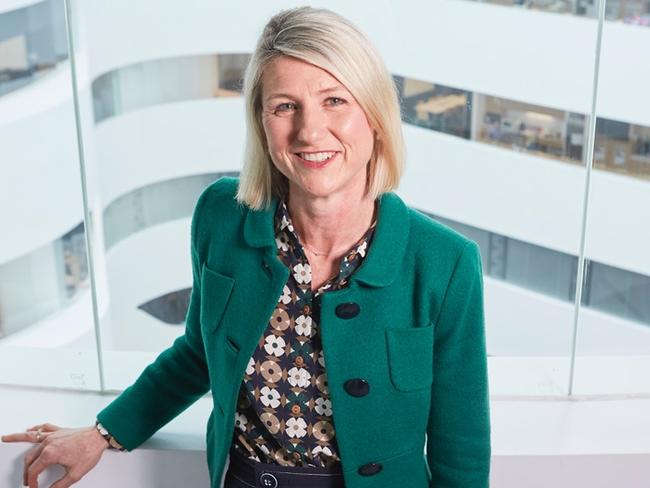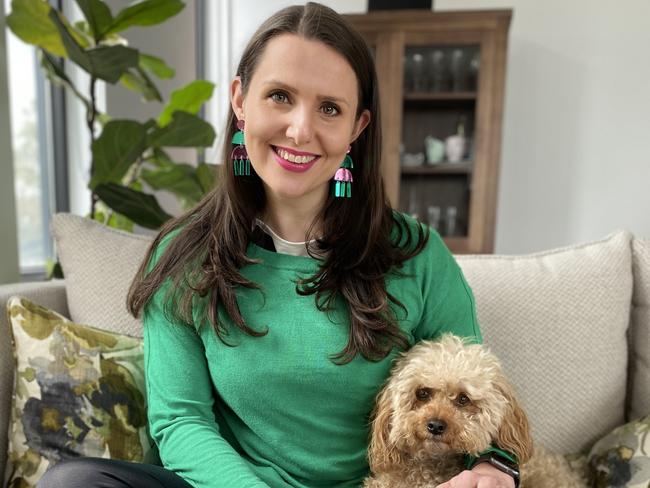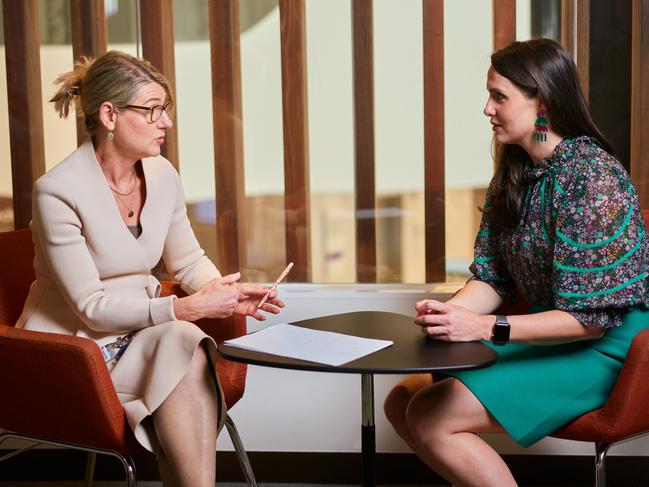Breakthrough offers hope for women carrying the ‘Angelina Jolie’ cancer genes
A new breast cancer treatment for women who carry the gene mutations made famous by actress Angelina Jolie brings hope but comes at a cost.

National
Don't miss out on the headlines from National. Followed categories will be added to My News.
There is stunning new hope for breast cancer patients who carry so-called Angelina Jolie genes with a new treatment reducing their risk of death by almost a third.
Drug treatment Lynparza is already subsidised in Australia to treat ovarian cancer, now it has been shown to extend the lives of women with breast cancer.
The drug is formulated for use in women who carry BRCA1 and BRCA2 gene mutations, which increase the risk of breast and ovarian cancer.
The genes were made famous by actress Angelina Jolie who carried the BRCA 1 gene and had a double mastectomy to reduce her risk of cancer.
Peter MacCallum oncologist Professor Kelly Phillips managed 60 Australian patients involved in the latest clinical trial that involved over 1800 women worldwide.
The trial was coordinated in Australia by Breast Cancer Trials and internationally by the Breast International Group.
The treatment exploits an underlying abnormality in the cancers of women with the genes, she said.
“Approximately 5 per cent of patients diagnosed with breast cancer have an underlying inherited BRCA1 or BRCA2 gene mutation. This equates to roughly 1000 women in Australia each year diagnosed with breast cancer. Typically, these women are diagnosed with breast cancer at a young age and may have a more aggressive form of the disease,” Professor Phillips said.

New trial results to be released at an international cancer conference this week show women treated with the drug have their chance of dying from the cancer slashed by 32 per cent.
Earlier research found it reduced the risk of cancer recurrences, secondary cancers and death by 42 per cent.
The trials were in women with early stage breast cancer that had not spread.
The drug comes in tablet form and is taken twice a day for twelve months and to date the trial has followed women for three and a half years after treatment started.
It is used after women have first received standard treatments including surgery, chemotherapy, radiation and hormone therapy, where appropriate.
Aged just 21, Dimity Paul had a genetic test that revealed she carried high risk BRCA gene mutations, ten years later she was diagnosed with triple negative breast cancer that had spread to her lymph nodes.
“After having seen my mum be quite sick (with three bouts of cancer) I wanted the health information to understand and manage my risk. So from the age of 27, I started having MRI scans which I’m very glad I did,” she said.

The 35-year-old corporate communications agent said she had a very aggressive form of breast cancer and until Lynparza had no further treatment options.
“So for me, it was a no-brainer, because there was nothing else I could and being able to participate in this trial meant I just had one more thing to try,” she said.
Paul has not been told whether she was given the dummy pill or Lynparza in the trial but she said she experienced fatigue and a bit of nausea but not enough to prevent her starting a new job, it did not stop her socialising and meant she continued to pay taxes.
Paul had watched her mother suffer through three gruelling cancer episodes and is thankful by participating in the trial she helped improve treatments for other women in the future.
“A lot of people if they have a serious illness, they want to make it easier for the next people behind them,” she said.

The expensive treatment was approved for use in breast cancer by the US Food and Drug Administration over the weekend but it is not yet subsidised for breast cancer treatment in Australia.
“I don’t think I would know many people who could pull out $60,000 To take a drug like this and I like to think it’s a pretty good investment,” Paul said.
“Now I’m back at work, I’m a taxpayer and participating in society, I’m a volunteer, I like to think that any money that is spent to keep particularly really young women who get these BRCA cancers alive and participating in societies is definitely worth every single cent that the government could put towards it.”
Originally published as Breakthrough offers hope for women carrying the ‘Angelina Jolie’ cancer genes





